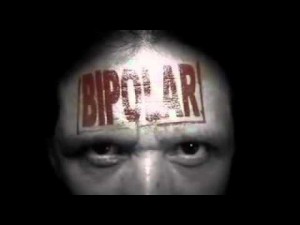The Huffington Post – June 22, 2012
by Mark Schulman, President, Saybrook University

Under this new "Bible of Psychiatry" every aspect of human life, every thought and feeling, can be considered a form of "mental illness" and treated with drugs
A university has to stand for something, and this means that sometimes a university has to take a stand.
Yet it would appear that few universities are doing this. One of my proudest moments as president of Saybrook University turned into one of the most disappointing moments I’ve had with higher education in this regard.
In November of 2011, Saybrook became the first, and to my knowledge the only, university to issue a formal challenge to the American Psychiatric Association, and officially stand with the over 12,000 mental health professionals who are demanding that changes to the DSM-5 be reconsidered.
This is a crucial issue. As the Saybrook psychology faculty note in their remarkable blog “The New Existentialists:” “the DSM-5 inflates diagnostic criteria to such an extent that it pathologizes normal behavior and natural human functioning.”
Under this new “Bible of Psychiatry” every aspect of human life, every thought and feeling, can be considered a form of “mental illness” and treated with drugs. An egregious example is a proposed change that would make any depression about the death of a loved one that lasts longer than two months a mental illness treatable by anti-depressants.
This is madness. Millions of people who are perfectly healthy, who are not sick but are looking for help, will be forcibly turned into customers for the pharmaceutical industry. Psychologists are being encouraged to spend less and less time actually talking with those they are seeking to help, getting to know them as human beings, and taking their search for meaning in life seriously.
As the leading university in humanistic psychology, Saybrook’s faculty felt strongly that we needed to take a stand, and voted unanimously to do so. I was proud to endorse their efforts.
The world noticed, and we expected other universities with strong psychology programs to join the fight and stand up for our humanity.
We waited in vain. To my knowledge no other university has yet taken such a stand, one that is desperately needed to advance the cause of sanity in mental health care.
This is deeply disappointing in two ways:
The first is as an indicator of the state of psychology itself. While the advances in psychopharmacology and neuropsychology are flashy and impressive they seem to have replaced, in the minds of professors of psychology, the idea that a patient might actually have anything to say about his or her condition — let alone offer insight into the process of their own healing.
This is simply wrong. The best research suggests that talk therapy is actually more effective than mood altering drugs — and that it is in fact the patient who does most of the work in healing themselves, with a therapist providing support when they get “stuck.” (See Art Bohart’s definitive treatise: “How Clients Make Therapy Work.”)
Just as importantly: most patients come to therapy not because they have neural chemical imbalances, but because they are grappling with fundamental questions: how do I live a meaningful life in a challenging world? How do I live with integrity? How do I repair my relationships? How do I live in harmony with my environment? Am I alone? What does my life mean?
To treat people asking these questions with drugs is tantamount to malpractice. Yet it is becoming standard practice.
The inability to take a stand is also an increasingly common, and disappointing, one in universities as a whole. As we compete for students in a difficult economy, universities seem to have lost sight of their mission, and much of higher education is becoming more corporate.
Do we train people for jobs? Yes, of course we do. But the words of John Levy(1), speaking about Saybrook’s founders 40 years ago, still seem right to me:
We have become convinced that most of what is happening in our educational institutions, and perhaps particularly in post-graduate work, is failing not only the students and faculty, but also our society, which desperately needs truly educated people. The accumulating reports from frustrated and disappointed students and teachers, whose idealism and hopes are not being realized; from graduates, who are discovering the meaninglessness of most of our educational accomplishments; and from community leaders, who find that the colleges are just not turning out people who can respond adequately to social needs, leave little doubt that something new must be tried.
We can do better. Universities owe it to their students, to their student’s future clients and customers, and to the world as a whole, to do better. Universities are not ivory towers, and they should not be turtles, hiding in their shells at the first sign of controversy.
I urge everyone reading this to stand up on this issue and be counted.
Mark Schulman, PhD, currently serves as president of Saybrook University, a premier graduate institution for humanistic studies in psychology, mind-body medicine, organizational systems, leadership, and human science. He is the former president of Goddard College (Vermont), and president and professor of humanities at Antioch University Southern California, Los Angeles and Santa Barbara. He has published extensively on progressive and emancipator education, distance learning, technology and culture.
http://www.huffingtonpost.com/mark-schulman/dsm-v-controversy_b_1619273.html

